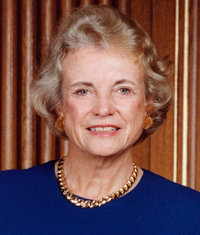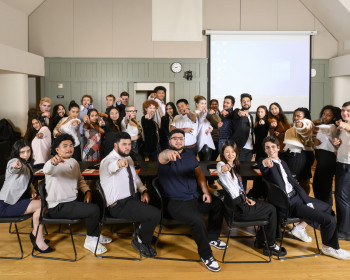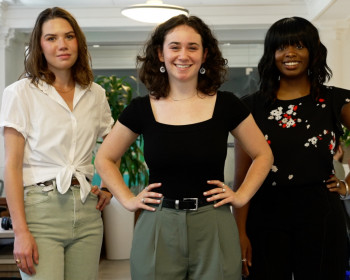(Portland, Ore.)—On September 18-20, Lewis & Clark Law School will host a celebration of the 40th anniversary of the Federal Judicial Center (FJC), the research and education arm of the federal court system. U.S. Supreme Court Justice Anthony M. Kennedy and retired Justice Sandra Day O’Connor and will speak, along with leading academics and numerous jurists and practitioners. Judges, lawyers, and academics from across the country will be in attendance.
“It is a rare occasion that a law school community gets to host such a distinguished group of judicial and academic leaders,” said Law School Dean Robert Klonoff. “We’re also excited to offer the community a rare look into the world of the federal judicial system. Offering a program of this magnitude is a great milestone for the law school.”
The two-day event will cover a number of critical issues facing the federal judicial system, its judges, litigators, and U.S. citizenry. Topics include:
• Balancing national security and individual liberties in an era of terrorism
• The growing impact of science and technology
• The costs of complex civil litigation
• The globalization of litigation
• The public’s perception of the federal courts
About the Federal Judicial Center
The Federal Judicial Center is the research and education agency of the federal judicial system. It was established by Congress in 1967, on the recommendation of the Judicial Conference of the United States. The many specific statutory duties of the center and its board fall into a few broad categories:
• conducting and promoting orientation and continuing education and training for federal judges, court employees, and others;
• developing recommendations about the operation and study of the federal courts;
• conducting and promoting research on federal judicial procedures, court operations, and history.


